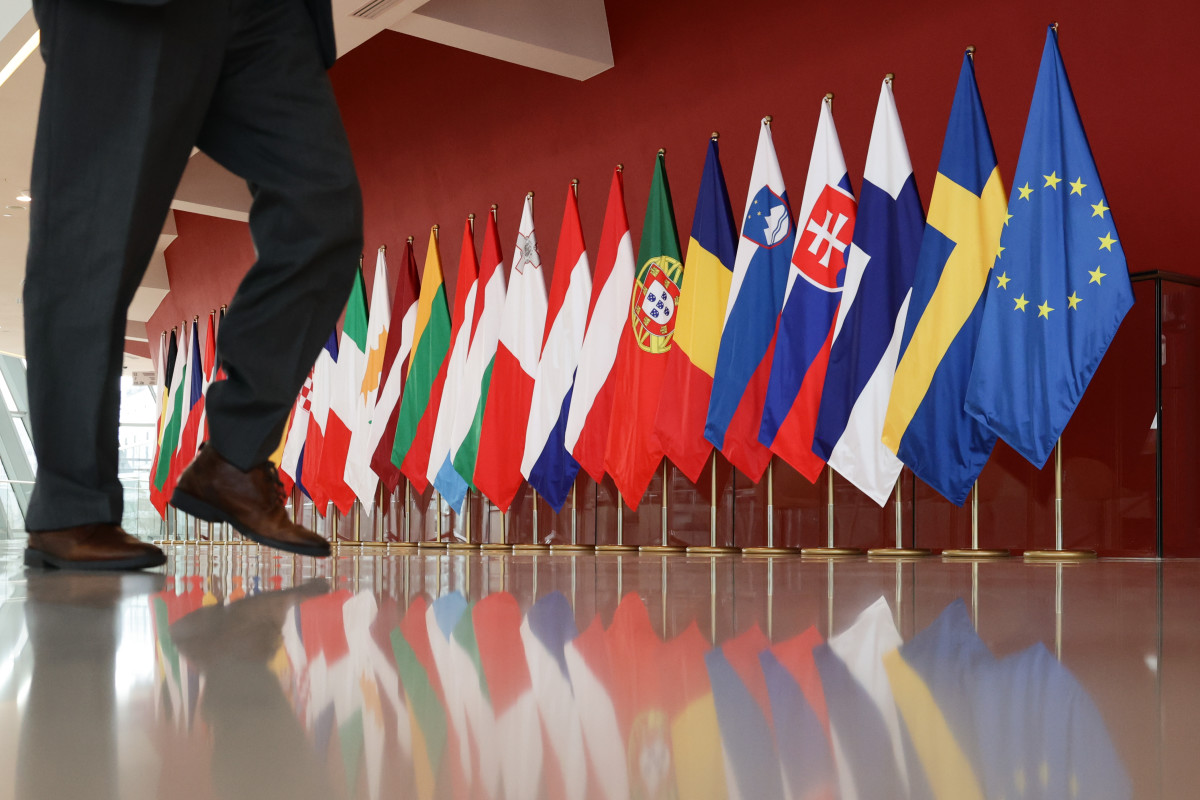
Since President Donald Trump's election, tech companies have been preparing for policies that favor their growth and impose few regulations. After all, Trump’s close advisors include Tesla (TSLA) CEO Elon Musk and former PayPal (PYPL) co-founder David Sacks.
⚡ Breaking: 12 things to know about Trump's new tariffs ⚡
But across the Atlantic Ocean, European economic tides are rapidly shifting in a different direction. The European Union (EU) has decided to send a powerful message to the companies producing artificial intelligence (AI) models, making it clear that its leaders have no intention of following Trump’s example.
Meanwhile, the group of nation-states has also taken a significant step toward cracking down on Chinese exports that may threaten its people. This decision could have significant implications for several prominent e-commerce companies.
More than that, it could set a precedent for how other countries approach Chinese imports, especially as Trump’s tariffs continue to cast uncertainty over the global economy.

European regulators are targeting two powerful industries
As AI has emerged as the transformative technology of the era, many experts have considered whether or not the companies behind it should be limited and if so, how regulators should approach it.
The EU may have just provided some answers. February 2, 2025 marked the first compliance deadline for the EU AI Act, a “risk-based rulebook” that regulators have been working on for years. This regulatory framework is aimed at ensuring that AI is developed and used responsibly throughout the EU’s 27 member states.
Related: Apple's AI strategy could be saved by an unexpected source
While the EU AI Act went into effect on August 1, 2024, yesterday brought its first key compliance deadline. It lays out four different levels of risk that AI technologies may pose for citizens, with four being the highest, labeled ‘unacceptable risk.’
EU regulators made this policy extremely clear, stating “All AI systems considered a clear threat to the safety, livelihoods and rights of people are banned.”
The practices that would earn a company an unacceptable risk classification include “harmful AI-based manipulation and deception,” “harmful AI-based exploitation of vulnerabilities,” and social scoring, such as using someone’s online behavior to build a risk profile.
This doesn’t just apply to firms based in EU member states. Any company found to be violating the ‘unacceptable risk’ practices in any EU territory will be subject to either $36 million in fines or 7% of the previous year’s fiscal income.
The regulatory crackdowns don’t end there, though. EU officials have introduced a proposal to make prominent e-commerce companies liable if they are caught selling “dangerous or illegal products” online.
This would impact popular Chinese platforms such as Shein and Temu, owned by PDD Holdings (PDD) but also Amazon (AMZN) , which would be obligated to provide more data on all packages sent to EU member states, allowing them to be thoroughly inspected for items that are considered either illegal, unsafe or both.
Both Chinese companies have been accused of illicit activity, including copyright violations, on numerous occasions.
- Mark Zuckerberg calls his shot with latest earnings call prediction
- Ex-Google CEO makes startling AI prediction
- Analysts offer blunt take on DeepSeek AI panic
“Currently, any individual in the EU who purchases goods online is treated as the importer for customs purposes,” reports The Financial Times. “But the reforms, if adopted, would switch the responsibility to the platforms.”
In the proposal, EU regulators highlight the dangers that unsafe imports can pose to their citizens. But they also noted the “unfair competition for legitimate businesses” that other companies have faced as a result of the Chinese import flood.
Out of this chaos, tech companies may find a new opportunity
The EU’s AI Act may not be new but it is coming along at a truly pivotal time for the technology.
As AI producers face a complicated economic landscape, made even more complicated by the launch of Chinese AI model DeepSeek, they must now face the fact that a powerful trade block is taking a stand for AI accountability.
Related: Users flock to a TikTok alternative that may be more dangerous
Experts have stated that both the AI Act and e-commerce proposal, if implemented, will force companies to either prioritize ethics and transparency or face severe consequences. Pimberly CEO and Co-Founder Martin Balaam recently discussed this with TheStreet, stating:
“Whether it’s AI oversight or holding eCommerce platforms/marketplaces accountable for the goods [and] services sold via their platforms - businesses will no longer be able to say “we are just a tech platform” – they will need to care about the legitimacy, safety and efficacy of products & services sold on or via their technology.”
He adds, though, that ultimately, this may lead to an opportunity for synergy between AI and e-commerce in the EU, as the former can help e-commerce companies find and flag any problems that could put them in violation of the EU’s policies.
This is likely only the beginning for this type of regulation, though. “Governments worldwide are realizing that unchecked AI and mass-imported goods create risks that can no longer be ignored,” Balaam notes, adding that he expects other nations to follow the EU’s example.
Related: Veteran fund manager issues dire S&P 500 warning for 2025

.jpg?w=600)





